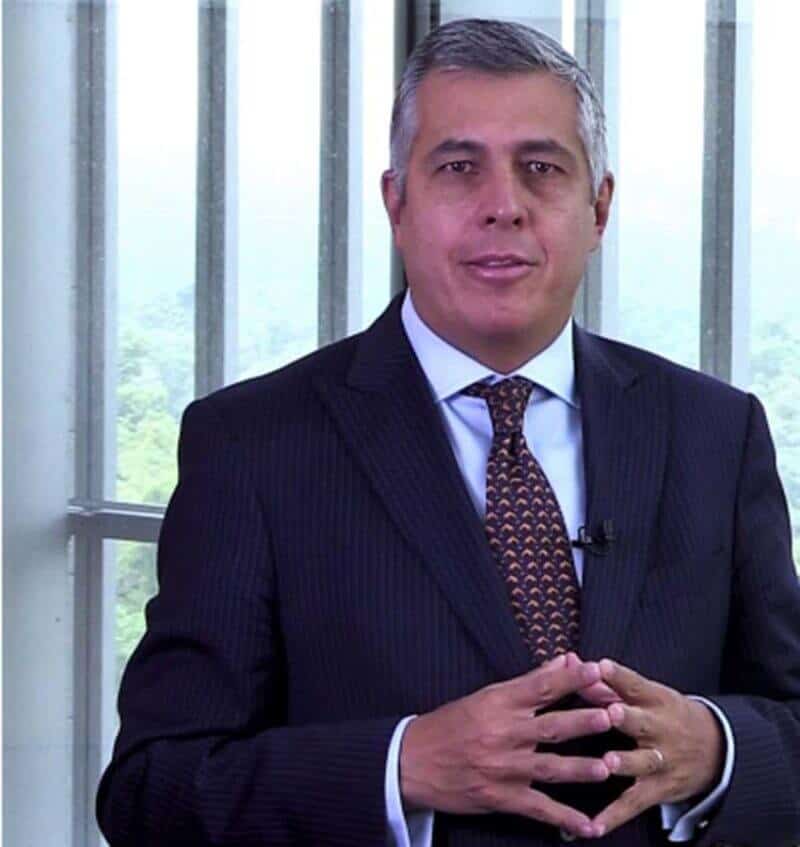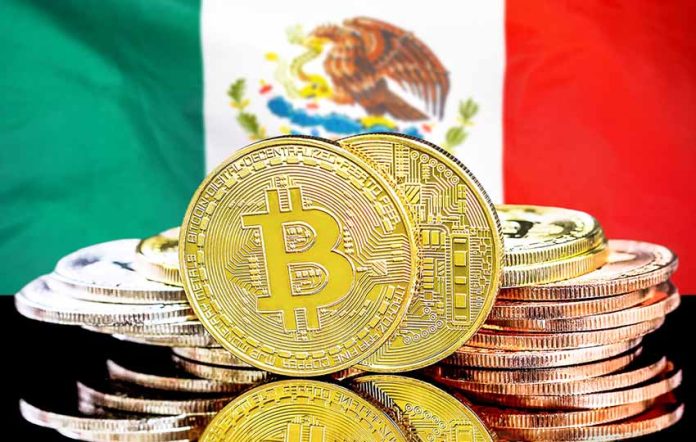Cryptocurrencies are not legal tender in Mexico, but many Mexicans have nevertheless acquired them: just over 12% of adults own a digital currency such as bitcoin or ethereum, according to a recent survey.
The comparison website Finder surveyed internet users from 22 countries and found that Mexicans were the ninth most likely to possess cryptocurrencies.
Of more than 2,400 people surveyed in Mexico, 12.1% own crypto, Finder found. Bitcoin was the most popular among Mexicans followed by ethereum, binance coin, cardano and dogecoin.
Finder also found that Mexican women are more likely to own cryptocurrencies than men. Of the crypto owners it identified, 53.7% were female and 46.3% were male.
The percentage of Mexican respondents who own a cryptocurrency was just above the 22-country survey average of 11.4%.
Mexicans who own cryptocurrencies can use them at approximately 100 businesses across the country, according to the website Coinmap.
One such business is the Bitcoin Embassy Bar in Mexico City's trendy Roma neighborhood, where discounts are on offer for customers who pay with bitcoin. A single bitcoin is currently worth more than US $62,000.
Owned by 31-year-old entrepreneur Lorena Ortiz, the establishment is “a kind of mecca for cryptocurrency enthusiasts,” according to the newspaper El País. In addition to functioning as a bar and restaurant, it offers seminars on cryptocurrencies and hosts debates on associated topics.
Ortiz rejects claims that cryptocurrencies such as bitcoin can't be considered real currencies because they weren't issued by central banks
“That's not true. History has taught us that money shouldn't be issued by an institution. [The concept of money] is a consensus of the population,” she told El País.

“The bankers who criticize [cryptocurrencies] are like taxi drivers who complain about Uber,” said Gustavo Grillasca, a 42-year-old digital artist and Bitcoin Embassy Bar customer. “There is now no way to stop bitcoin,” he said.
Their views, and those of the vast majority of cryptocurrency devotees, contrast sharply with the opinions of most governments and central banks, including those of Mexico. Shortly after El Salvador adopted bitcoin as legal tender earlier this year, the federal Finance Ministry, the Bank of México and the National Banking and Securities Commission issued a joint statement reiterating that cryptocurrencies cannot be legally accepted in the Mexican financial system.
Ignacio Flores, a bitcoin user and director of a company that offers protection for digital currency transactions, told El País that their stance is not surprising.
“It's like the 90s when the internet arrived. There was radio and television, and suddenly an alternative channel that transmits audio and video arrived. Technology is always ahead of laws,” he said.
Another opponent of cryptocurrencies is Gabriela Siller, director of economic analysis at Banco BASE.
Although cryptocurrencies are becoming increasingly popular and mainstream, she described them as “a fad” and lamented that their main use will eventually be to conduct illegal transactions. She also said that businesses accepting cryptocurrencies are running a risk due to the volatility of their value. “[Businesses] set prices in official currencies but the value [of a cryptocurrency] can easily change 15% in a day. For a company, the risk is greater than the benefit,” she said.

Carlos Serrano, chief economist at BBVA México, also raised concerns about the use of cryptocurrencies.
“In a country like ours, before thinking about [getting] more businesses to accept [cryptocurrency] payments, we have to make sure that ... [their use] doesn't become a vehicle for tax evasion. You can't currently pay your taxes with cryptocurrencies,” he said.
However, Mexican businesses that accept them are meeting their tax obligations, El País reported. Ortiz, for example, calculates her bitcoin earnings in pesos and reports them to tax authorities.
The vast majority of Mexican businesses that accept crypto are small and medium-sized businesses far removed from “the image of a virtual pirate” seeking to carry out a mega-fraud, El País said. In fact, some Mexican businesses willing to accept payments in cryptocurrencies haven't yet found a single customer. That's the case for a Mexico City dental clinic that announced three years ago that it would accept certain cryptocurrency payments.
Although her patients have yet to take up the opportunity to pay their dental bills with bitcoin or ethereum, 28-year-old dentist Carmen Salgado is convinced that they will one day. “I believe ... [cryptocurrencies are] the future,” she told El País.
Although he acknowledged that the use of cryptocurrencies comes with risks, Serrano believes that central banks should stop dragging their heels and begin using blockchain technology to develop their own.
“It's urgent for central banks to discuss alternatives. The advantage of getting rid of physical money is undeniable,” he said.
With reports from El Economista and El País
